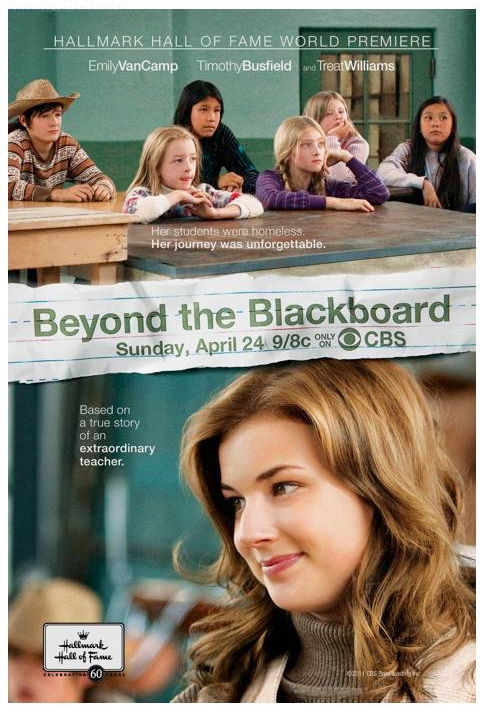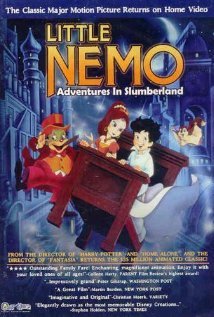
While You Are Staying in Place:
Here Are Some Great Audio Books and Courses
By Dr. Ted Baehr, Publisher
Because my wife Lili is legally blind, she listens to audio books, courses and podcasts, and she has gotten me hooked on them too. Here are some that I recommend form Audible and The Great Courses, although Lili gets hers from the Braille Institute.
> Encountering the Old Testament: A Christian Survey by Bill T. Arnold , Bryan E. Beyer, Narrated by: Eric Martin
This is our favorite comprehensive course on the Bible. When I recommended it to my sons, who went to Wheaton College, they said it was in their curriculum. Even so, it is very in-depth, yet accessible and fun for listening and for study. Having gone to seminary years ago, I was impressed how clear and solid the doctrine was and how comprehensive the in-depth analysis was, including presenting the major theological positions, yet revealing the truth in every book of the Old Testament.
This is the Publisher’s Summary:
This new edition of a best-selling evangelical survey of the Old Testament has been thoroughly updated and retains the pedagogical features that have made the work so popular:
- Chapter outlines, objectives, and summaries
- Study questions
- Sections featuring primary source material, ethical and theological issues, and contemporary applications
- Lists of key terms, people, and places
- Further listening recommendations
> MODERN TIMES: THE WORLD FROM THE TWENTIES TO THE NINETIES By Paul Johnson, Narrated By: Nadia May
The seismic culture shaking book, Modern Times: The World from the Twenties to the Nineties is a must read/listen to book that will help you to understand the good, the bad and the ugly of the modern history of the last Century. One of our editors attributed his conversion in part to this great book. Every day Modern Times becomes more relevant. It will capture your heart and change your mind in dramatic ways.
Publisher’s Summary:
Named one of the Best Books of the Year in 1983 by the New York Times, this fast-paced, all-encompassing narrative history covers the great events, ideas, and personalities of the six decades following the end of World War I. It offers a full-scale analysis of how the modern age came into being and where it is heading.
Beginning with May 29, 1919, when photographs of the solar eclipse confirmed the truth of Einstein’s theory of relativity, Johnson goes on to describe Freudianism, the establishment of the first Marxist state, the chaos of “Old Europe,” the Arcadian 20s, and the new forces in China and Japan. Also discussed are Karl Marx, Hitler, Mussolini, Stalin, Roosevelt, Gandhi, Castro, Kennedy, Nixon, the 1929 stock market crash, the Great Depression, Roosevelt’s New Deal, and the massive conflict of World War II.
>Philosophy and Religion in the West by Professor Phillip Cary
Having read many books on philosophy and religion and studied many courses from Dartmouth College to many years later, this is the best and the most comprehensive course, presented by The Great Courses. It is presented from a solid point of view, and explains many of the issues of today.
Course Summary by Professor Phillip Cary:
This course of lectures is an historical examination of the interaction between philosophical traditions and religious traditions in the West. We begin with the roots of the philosophical tradition in ancient Greece, examining how Socrates, Plato, Aristotle and the Neoplatonist philosopher Plotinus dealt with issues concerning God, the soul, and the nature of the cosmos (Lectures One through Five). The key concepts which this tradition contributed to Western religion are the Socratic practice of critical inquiry and the Platonist theory of intelligibility: the notion that the ultimate truth about which we inquire consists in certain timeless Forms or essences which our souls perceive with the “mind’s eye.” From this notion come the philosophical concepts of the eternity of God, the immortality of the soul, the Fall and “going to heaven” as the soul’s return to its native place.
Next we turn to the two great Western religious traditions, Judaism and Christianity, which are interpreted as traditions vested in particular historical communities, their practices of worship, their sacred texts, and their allegiance to specific “places” where human beings meet God. We look at the scriptures of Israel and their rabbinic interpretation in Judaism, as well as the New Testament and its interpretation by the Church Fathers, who were decisive for the formation of the Christian tradition (Lectures Six through Ten).
The interaction between these two traditions and the Platonist philosophical tradition begins even before the New Testament was written, and continues through the works of medieval philosophers, both Jewish and Christian. These philosophers combined Platonist metaphysics and Biblical religion so as to formulate the intellectual system that has been called “classical theism” – a system which was taken for granted by most religious thinkers, including mystics, up through the time of the Reformation (Lectures Eleven through Sixteen).
Modernity (Lectures Seventeen through Twenty-Six) is rooted in a crisis of religious authority, which means that some philosophers became critics of religion (Hume, Marx, Nietzsche) but others tried to set it on new philosophical foundations (Locke, Leibniz, Kant, Hegel)—in the process of which they sought a deeper conception of the human self and its relation to the divine (Schleiermacher, Kierkegaard).
Many 20th-century thinkers have sought to re-conceive the synthesis between philosophy and religion that undergirded classical theism, questioning especially the Platonist metaphysics which led classical theists to suppose God was timeless and impassable (Lectures Twenty-Seven through Twenty-Nine). In recent years, the meaning and rationality of religion have been rethought in ways that make them less dependent on philosophical theories, yet leave an essential place within religion for the practice of critical inquiry (Lectures Thirty through Thirty-Two).
>THE COLD WAR: WHAT WE SAW: ESOTERIC RADIO THEATRE By Bill Whittle
This is the best podcast series I have heard. It reveals details of the Cold War that must be known in an exciting way. I lived through the Cold War, but this series gave even me a better understanding of the forces involved, from a very solid perspective. The production quality and voice quality are excellent. The history is faithful. The facts are mind changing.
Producer’s Summary:
November 9, 2019, is the 30th anniversary of the day the Berlin Wall came crashing down, freeing East Germany from communism, and marking the beginning of the end of the Soviet Union. But when did the Cold War start? Why does it matter 30 years later? Find out in this ten-part series, transport back in time, feel what it was like to live through the end of the Cold War, and understand why that struggle was a battle for civilization itself. Bill Whittle narrates this compelling series about two competing ideologies battling for global supremacy in the ashes of World War II.
>The Last Lion: Winston Spencer Churchill, Volume I, II and III by William Manchester, narrated by Frederick Davidson.
There are many worthwhile books on Winston Churchill, but many argue that this is the best. Much of the histories of Churchill from his youth and then throughout his life in each volume could be turned into movies, without much work in scripting. It is that exciting and revealing. It is a wonderful way to understand the history of the 20th Century and how it impacts us today, without becoming too didactic, while revealing exciting details and insights.
This is the Publisher’s notes:
Winston Churchill is perhaps the most important political figure of the 20th century. His great oratory and leadership during the Second World War were only part of his huge breadth of experience and achievement. Studying his life is a fascinating way to imbibe the history of his era and gain insight into key events that have shaped our time.
In political office at the end of World War I, Churchill foresaw the folly of Versailles and feared what a crippled Germany would do to the balance of power. In his years in the political wilderness, from 1931 to 1939, he alone of all British public men continually raised his voice against Hitler and his appeasers. For over 50 years, he was constantly involved in, and usually at the center of, the most important events of his age. It was, however, his obduracy on matters of principle, his fortitude in the face of opposition, and his perseverance in standing alone that defined him.
>THE CITY OF GOD By Saint Augustine Narrated By: Bernard Mayes
After the Bible, this is the most important book that influenced Christian theology: both Protestant and Roman Catholic. Listening to Augustine’s brilliant tome makes it come alive, since he dictated it. Not only does Augustine present the case for solid biblical Christianity, but he also deals with issues that are the pressing issues of our age, such as: did the world and universe always exist, or did it evolve, or was it created. Theology, science, philosophy, and many other areas of the humanities are unpacked with insight and revelation. This is a must read or hear book.
Publisher’s Summary:
Written between A.D. 413 and 426, The City of God is one of the great cornerstones in the history of Christian thought, a book which is vital to the understanding of modern Western society. Augustine originally intended it to be an apology for Christianity against the accusation that the Church was responsible for the decline of the Roman Empire, which had occurred just three years earlier. Indeed, Augustine produced a great amount of evidence to prove that paganism was responsible for this event. However, by the time the work was finished, the book had taken on a larger theme: a cosmic interpretation of history in terms of the conflict between good (the City of God) and evil (the Earthly City). Augustine foresees that through the will of God, the people of the City of God will eventually win immortality, and those in the Earthly City, destruction.
>VENICE: A NEW HISTORY By Professor Thomas F. Madden, Narrated By: Edoardo Ballerini
This is a truly great course from The Great Courses about the longest living republic Venice, Italy, whose government inspired the Founding Fathers of the United States of America. This is Prof. Madden’s specialty, and all his courses are worthwhile, but this is extraordinary. The Republic of Venice became a major shipping power, invented modern forms of accounting, defended freedom, and yet held onto their republican government. The information is fascinating and captivating. . . and highly recommended.
Publisher’s Summary:
An extraordinary chronicle of Venice, its people, and its grandeur, Thomas Madden’s majestic, sprawling history of Venice is the first full portrait of the city in English in many years. Using long-buried archival material and a wealth of newly translated documents, Madden weaves a spellbinding story of a place and its people, tracing an arc from the city’s humble origins as a lagoon refuge to its apex as a vast maritime empire and Renaissance epicenter to its rebirth as a modern tourist hub. Madden explores all aspects of Venice’s breathtaking achievements: the construction of its unparalleled navy, its role as an economic powerhouse and birthplace of capitalism, its popularization of opera, the stunning architecture of its watery environs, and more. He sets these in the context of the rise and fall of the Byzantine Empire, the endless waves of Crusades to the Holy Land, and the awesome power of Turkish sultans. And perhaps most critically, Madden corrects the stereotype of Shakespeare’s money-lending Shylock that has distorted the Venetian character, uncovering instead a much more complex and fascinating story, peopled by men and women whose ingenuity and deep faith profoundly altered the course of civilization.
>Institutes of the Christian Religion By John Calvin Narrated By: Bob Souer
Whether you are vehemently against or for what you think Calvinism is and whatever your theology, this book will enlighten and surprise you. It was written to the King of France to appeal to him to end the persecution of Protestants. Contrary to current thought, Calvin was known as the “theologian of the Holy Spirit,” because he constantly says that understanding faith and values first requires the Holy Spirit. You will also discover that Calvin was not the author of the theological short hand “TULIP”, which was extrapolated around 100 years later. In fact, these purported “five points of Calvinism” arose in the seventeenth century, in the Netherlands. To understand whatever your beliefs are, listening to the Institutes of the Christian Religion will deepen and broaden your faith.
Publisher’s Summary:
Institutes of the Christian Religion is John Calvin’s seminal work on Protestant systematic theology. Highly influential in the Western world and still widely read by theological students today, it was published in Latin in 1536 and in his native French in 1541. The book serves as an introductory textbook on the Protestant faith for those with some previous knowledge of theology and covers a broad range of theological topics from the doctrines of church and sacraments to justification by faith alone and Christian liberty. The overarching theme of the book – and Calvin’s greatest theological legacy – is the idea of God’s total sovereignty, particularly in salvation and election. Institutes of the Christian Religionis highly-regarded as a secondary reference for the system of doctrine adopted by the Reformed churches, which is commonly referred to as Calvinism.
>THE MODERN SCHOLAR: EMPIRE OF GOLD: A HISTORY OF THE BYZANTINE EMPIRE By Thomas F. Madden Narrated By Thomas F. Madden
This is another wonderful course from The Great Courses about the Eastern Roman Empire in the Middle Ages until 1453. The course helps us understand contemporary civilization. Like all of Madden’s courses, it is informative, entertaining and revealing.
Publisher’s Summary:
In this epic course, esteemed university professor Thomas F. Madden offers a fascinating history of the remarkable culture and state that developed out of the ancient Roman Empire, particularly its eastern portion, throughout the Middle Ages. The story begins at the end of the Roman Empire in the third century AD and continues over the next one thousand years.
With incisive commentary, Professor Madden leads a discussion covering Justinian’s re-conquest of the West, the great city of Constantinople, and the aftermath and influence of this extraordinary empire. The term “Byzantine” was invented by modern historians to identify the final millennium of the Roman Empire. By the third century and into the fourth century, there were changes in the Roman Empire so profound that historians during the Enlightenment began to call the period Byzantine rather than Roman. Most historians would place the beginnings of the Byzantine Empire roughly around the reign of the emperor Diocletian, who instituted widespread reforms to halt civil wars and economic decline.
One of the primary characteristics of the Byzantine Empire was the relegation of Rome to a place of honor only. Rome was not the capital of the Byzantine Empire. The capital, instead, was Constantinople. Therefore, power was based in the eastern Mediterranean. Next was the dominance of Greek culture and eastern perspectives, and a final characteristic was the integration of Christianity into the social and political fabric of the empire. Constantinople was the beating heart of the Byzantine Empire and the greatest city in the Western world at this time. Constantinople sat at the crossroads of the world and controlled east-west land traffic. Eventually, the fall of Constantinople to the Ottoman Turks reverberated across the Christian world. Europeans now saw a world in which nothing stood between them as the last remnant of free Christendom and the ever-growing powers of Islam.
>INTELLECTUALS By Paul Johnson Narrated By Frederick Davidson
This is most brilliant expose of the men ruling our culture from the grave, such as Marx, Darwin and even a few still living. If you want to know more about these influencers, read Intellectuals. And, it is an interesting read.
Publisher’s Summary:
Since the time of Voltaire and Rousseau, the secular intellectual has increasingly filled the vacuum left by the decline of the cleric and assumed the functions of moral mentor and critic of mankind. This fascinating portrait of the minds that have shaped the modern world examines the moral credentials of those whose thoughts have influenced humanity.
How do intellectuals set about reaching their conclusions? How carefully do they examine the evidence? How great is their respect for truth? And how do they apply their public principles to their private lives? In an intriguing series of case studies and incisive portraits, Rousseau, Shelley, Marx, Ibsen, Tolstoy, Hemingway, Bertrand Russell, Bertolt Brecht, Sartre, Norman Mailer, James Baldwin, Noam Chomsky, and others are revealed as intellectuals both brilliant and contradictory, magnetic and dangerous.
>The Leopard By: Giuseppe Tomasi di Lampedusa Narrated by: David Horovitch
The Leopard is listed as one of the top 100 novels ever written on many lists, but seldom read by Americans. Articles have been written about how The Leopard makes the reader long to see Sicily and reveals a country that has incredible charm in spite of its severe limitations. The portrait of waning nobility and rising revolutionaries is fascinating. It is one of the great novels.
Publisher’s Summary:
Elegiac, bittersweet and profoundly moving, The Leopard chronicles the turbulent transformation of the Risorgimento, in the period of Italian Unification. The waning feudal authority of the elegant and stately Prince of Salina is pitted against the materialistic cunning of Don Calogero, in Tomasi’s magnificently descriptive memorial to a dying age.
Tomasi’s award-winning, semi-autobiographical book became the best-selling novel in Italian history, and is now considered one of the greatest works of 20th Century fiction. It tells an age-old tale of the conflict between old and new, ancient and modern, reflecting bitterly on the inevitability and cruelty of change.
>Legacies of Great Economists by Professor Timothy Taylor
Professor Taylor makes economics exciting and communicates an incredible amount of information that everyone should know in this course from The Great Courses. When payed for my family on a road trip, everyone was captivated.
Course Summary by Professor Timothy Taylor
This series of 10 lectures discusses the “Legacies of Great Economists.” Its purpose is to acquaint you with the thoughts, theories, and lives of great economists, ranging from the predecessors of Adam Smith in the eighteenth century to twentieth century giants like John Maynard Keynes and Milton Friedman.
Evaluating thinkers of the past is an inherently difficult business. Their use of terms and concepts is often unfamiliar. Their sense of important issues may seem peculiar, because issues have changed between their time and our own. They may lay great emphasis on ideas that, from a modern perspective, seem obvious or unimportant, or both. They make misjudgments and mistakes that provide grist for later writers. Great economists of the past always labor from the severe disadvantage that, unlike us, they did not have the legacy of their own writings from which to learn and upon which to build.
But we can learn lessons from these great thinkers, both when their insights have held up over time, and when their theories have turned out to need revision. Opening a window into the mind of genius offers a fresh breeze of new ideas and perspectives. In listening to these lectures, you will learn how economic thought has evolved over time. This should help you to perceive the roots of the current level of economic understanding. You will also perceive that some current disputes over economic policy have been continual sources of argument over the last several centuries.
The first lecture focuses on the backgrounds, key figures, and impacts of the Mercantilists and the Physiocrats. In this period prior to 1750, the beginning concepts of economics are discussed which set the stage for Adam Smith, who is the focus of the next lecture.
In Lecture Two, we discuss Smith and the birth of economics. By examining his building blocks for The Wealth of Nations, we begin to understand such concepts as the division of labor, trade, and the “invisible hand,” and their tremendous impact on society.
Lecture Three introduces what we know as the “dismal science” and the work of Thomas Robert Malthus and David Ricardo. We examine in-depth Malthus and his population principle. Although these two men often disagreed on major economic issues, they were close friends.
Lecture Four deals with John Stuart Mill and Utilitarianism. We study the tenets and foundations of the classical school of economics, the rise of homo economicus, and Mill’s impact on our society today.
In Lecture Five we look at Karl Marx and the advent of socialism. This includes a look at the impulse of socialist thought and the capitalist law of motion. We also look at Marxist economics in retrospect to determine how his predictions played out in the real world.
Lecture Six examines Alfred Marshall and marginalist thought. We begin by looking at the marginalist revolution and how it developed both a theory of value and of productivity. Next we study Marshall’s principles of economics and their influence on neoclassical economics and social justice.
Lecture Seven examines the debate between the scientific socialists and the Austrian school of economics. We look at the development of both schools of thought and how they responded to each other. In Lecture Eight, we are introduced to Joseph Schumpeter and the concept of entrepreneurialism. Schumpeter looked at the relationship between the entrepreneur and the business cycle and commented on the viability of socialism and capitalism.
Lecture Nine focuses on John Maynard Keynes and the Keynesian Revolution. We look at his stepping stones and theses of his book The General Theory. We then look at how Keynes altered economic thinking and the still surviving offspring of Keynesian thought.
In the tenth and final lecture, we study Milton Friedman and the rebirth of classical economics. This includes a look at Friedman’s work on the permanent income hypothesis and on far-sighted expectations as well as his study on both monetary matters and history. Finally, we look at how he brought market-oriented thinking into public discourse through a variety of measures.
Questions or comments? Please write to us here.


 - Content:
- Content: 

 – Content:
– Content: 